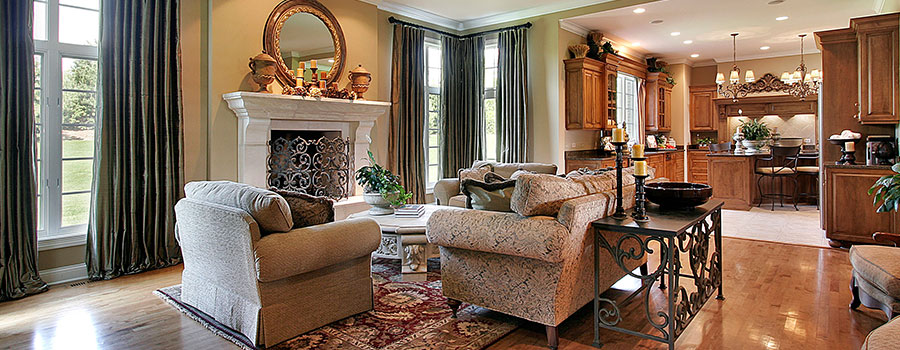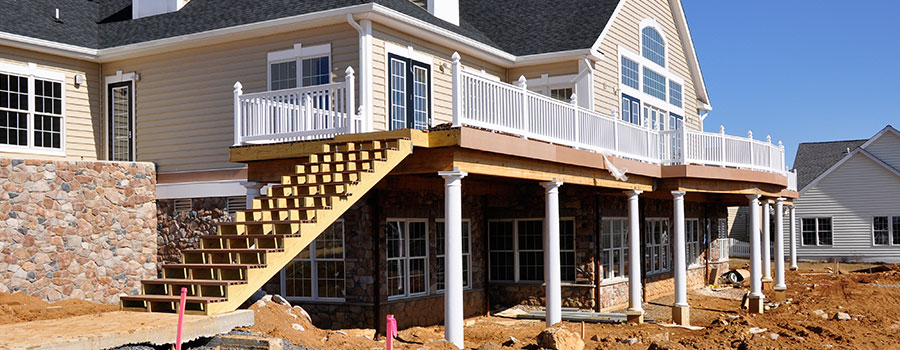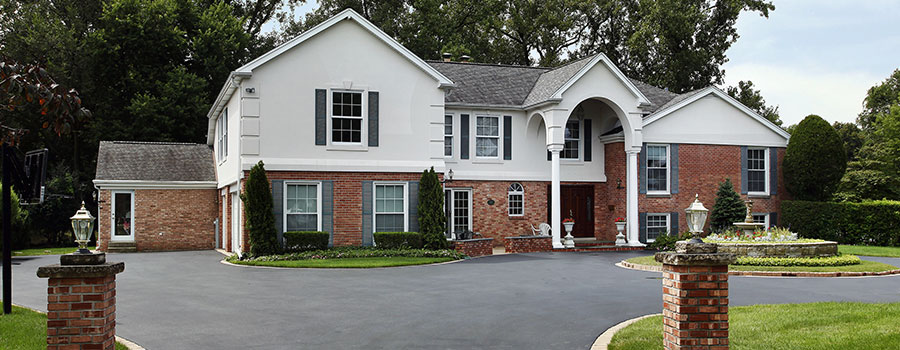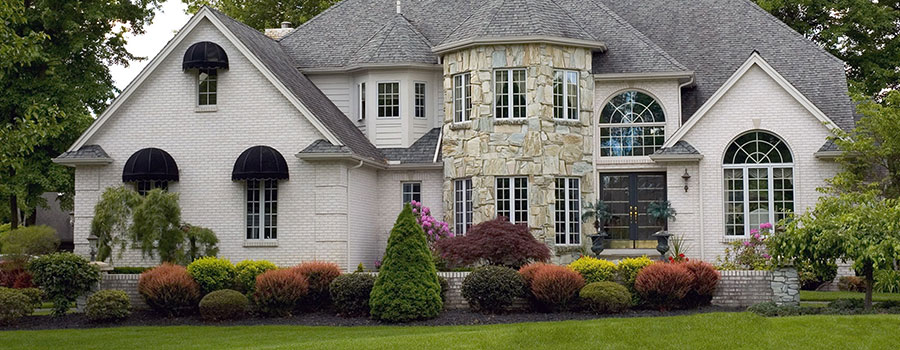Renovating Your Condo: Best Practices and Pitfalls to Avoid
Renovating your condominium may be a fantastic way to increase the value of your property while also keeping it up to date. There are a few things you should know before starting the project. Read on to learn about the most crucial things to accomplish before beginning your condo makeover. Find an experienced contractor. Before undertaking any renovation project, get estimates from many different condo remodel contractors. When you do this, you will not only get the best deal, but you will also have a greater understanding of what is involved in the renovation job. Finding a trustworthy contractor should be the first step in the process. This is a simple statement to make, yet some individuals have no idea where or how to get one. If you own a condo and have condo insurance, you should ask your insurance company for a list of permitted contractors. You may also get this list from the administration of your property. The cool thing is that a professional contractor is easy to communicate with and can help you establish design ideas that are both budget-friendly and meet your preferences. The person in charge of the assignment must be aware of your objectives and be willing to update you on progress at least once a week, if not more frequently. Before you start the project, ensure that you document everything in writing. This includes the labor and building material costs, as well as the contract, timetable, and work specifications. This way, you’ll always be able to return to it if something unexpected happens. Take time to understand the condo renovation rules If you want to modify a condo unit for any reason, you should educate yourself on the condominium renovation guidelines in your area. Because condominiums are attached to other units in a building, condo owners must follow specific rules and regulations when renovating or remodeling. For example, before upgrading your condo unit, you should check with the regulatory government agency to see if you need permission. You should note that if you do not follow any of these regulations, you may face significant fines, court time, and other legal consequences. To avoid these issues, take time to understand the applicable condo renovation guidelines in your area. Know your limits You may be able to make modest changes to your kitchen or bathroom, but if you want to replace the kitchen cabinets, walls, roof, natural lighting, paint, or tiles, you must hire a professional to complete the work. Always adhere to the condominium renovation regulations and guidelines established by the condo board or management. If you’re on a tight budget, you might want to consider simple improvements to give your condo unit a new look. For instance, you could bring new plants. It is well understood that indoor plants improve mood, creativity, and productivity. Adjust the arrangement of your furnishings. You will be surprised at how much small modifications may improve the appearance of your residence. Add some mood lights to make you feel more comfortable at night. Replace your window coverings or allow more natural light in. To keep your place clean, […]
Read moreElevate Your Space: Expert Condo Remodeling Advice
Condominiums, like any other type of residence, age, some more gracefully than others. The decision to renovate your condo can be made for various reasons, such as fixing it up, modernizing it, personalizing it, or boosting its worth to improve your chances of selling. Whatever your reason, you are undertaking a condo remodel project, condo renovations are becoming increasingly popular because they are less expensive than purchasing a new one. Additionally, new condos frequently provide less square footage for the same price, so there are numerous advantages to updating an older model. Depending on the size of the renovation and the rooms you intend to revamp, it may be rather pricey. Therefore, planning and budgeting the project carefully is necessary to guarantee that everything is completed properly and at the right time. This post will cover all you need to know about renovating a condo so you can get started right. Know the rules you should abide by Before considering upgrading your condo, you should learn the rules of your building’s board or association. Every condominium complex has a set of rules that must be followed when renovating. These factors can influence cosmetic choices and material selections. They may also have policies about the times and days when you can carry out improvements, bring in materials, and which elevator to use, among other things. Your board may even require you to produce a copy of a permit or approval before beginning work. While these policies are meant to keep everyone in the building happy, if they are not followed, they might cause problems during the remodeling process, so ensure that you follow and respect them. You should be creative. In a condominium, every square inch counts. You’re dealing with little space, so you must get inventive. Take a close look at your arrangement. Does it work for you? Could you remove a wall to create more space? Or maybe make a hidden storage alcove in that awkward area. Speaking of storage, it’s the ultimate goal of condo living. Consider built-in shelving, under-bed storage, or even furniture that serves as storage. What about that ottoman? It might be hiding your winter blankets. What about that coffee table? Ensure that you take advantage of as much space as possible. Aim to reduce the noise. Living in close quarters means you may be privy to your neighbor’s late-night TV marathons or early-morning gym regimens. Not ideal, right? This is where soundproofing comes in. You don’t have to convert your apartment into a recording studio, but some noise reduction can go a long way. Consider installing acoustic panels on walls, updating to double-pane windows, or even incorporating sound-absorbing materials into your decor. Your ears (and neighbors) will thank you. Ensure you have enough lighting. Good lighting can make or break a space, particularly in a condo with limited natural light. Use your large windows to their full potential. Consider light-colored window treatments that allow sunlight in while still providing privacy. Consider layers while designing artificial lighting. Create a warm, inviting ambiance by combining overhead, job, and accent lighting. And don’t forget about energy efficiency; […]
Read moreGuide to Remodeling Your Condo
A condo remodel differs from a stand-alone home renovation in that there are shared spaces in a condo that must be considered as part of the renovation, as well as numerous very close neighbors who are likely to have an opinion on any work you wish to conduct. You will also have to follow the norms of your own complex and the legislation that applies to renovating condos in your jurisdiction, which has its own set of obstacles. This post aims to walk you through some of the most essential items to consider before starting a restoration project in your condo. Understand the rules in your area. Before proceeding, you should learn about the procedures that your body has established for your apartment complex regarding renovation clearances. An excellent place to start is by reviewing the strata By-Laws, which often contain specific instructions on what is authorized to ensure the comfort and safety of all tenants within the apartment complex. The By-laws that you need to consider include: What you can and cannot do, such as modifying the windows, what flooring you can use (for example, wood floating floors are frequently not permitted due to noise transfer), and so on. Hours your craftsmen and technicians will be able to work. What you need to do to protect common areas throughout the remodeling (e.g., cover lifts and standard floors with protective material) Which materials you can use Installation of satellite television or air conditioning devices. What alterations are and are not allowed Whether you’re authorized to make any structural changes, and if so, how to do so. The By-Laws aim to establish the regulations under which everyone in the apartment complex functions in terms of what they can and cannot do to their units and their behavior within the complex. The By-Laws protect each owner in the apartment complex while ensuring all inhabitants’ privacy and safety. The By-Laws also outline what can and cannot be done to the common property, such as windows. Once you’ve determined what you can and cannot do within your condo complex, the following step is to create your design and scope of work and present it for approval. Your corporate body will likely require a combination of the following to examine your remodeling application: Plans and/or a design of modifications, typically drawn up by a designer or draftsman (for significant works) A structural engineer can provide advice and drawings for any structural work you want. A thorough scope of work. Projected timelines for your project A timetable of fittings and finishes, particularly any changes to fixed floor coverings. It is critical to be well-prepared when presenting all of the above to your Body Corporate, as it may take some time for your demands to be discussed and a decision made. Do cosmetic changes that are within the rules Cosmetic improvements to your unit can sometimes be performed without formal approval. Still, verifying the By-Laws for your specific condo complex is always a good idea. Before completely renovating your condo, evaluate whether you can fulfill many of your goals with relatively simple updates. Without a doubt, a […]
Read moreCommon Mistakes Homeowners Make When Remodeling Their Condos
Studies show that many homeowners make plenty of mistakes when remodeling their condos. These mistakes include: Going for the cheapest contractors The quotes you receive from several condo remodel contractors you interview will differ significantly. The majority of them most likely lie in a similar mid-range, with one perhaps being high and another relatively low. A frugal homeowner may believe they have found the solution after seeing that inexpensive estimate, but things are not as simple as they seem. Perhaps the contractor omitted something from your quote, which is why it is substantially less than the others. It’s also possible they’re giving you a quote without including the cost of permits or debris disposal, or they’re using technicians with less experience or lower-quality supplies. Regretfully, there are instances where the contractor may be purposefully deceiving you. It hurts to learn about it, but it does occur. You should avoid contractors who refuse to provide a receipt or who offer a discount in exchange for payment. This is because these are often signs of dishonest contractors. You should note that there’s usually a valid explanation if a quote is low. When you receive a quote that is much lower than the average, you shouldn’t rush to take it. Instead, you should be concerned about the caliber of the job. If you believe that hiring a professional is pricey, consider the expense of hiring a professional to correct amateur work that you attempted to save money on. This is a note to say that you should go with the highest quote to guarantee quality work. It’s probably not real if it seems too good to be true. When you receive the quote, inquire if the contractor has defined every material by brand, model, and finish. Next, find out if the quote covers every task included in the project, line by line. To be safe and ensure that you don’t hire a contractor that you later regret, you want to see a lengthy, in-depth quote. Short and superficial ones will simply not do your project any justice, so you should avoid them. Focusing too much on the aesthetics There is always the allure of a fresh, modern kitchen or bathroom, but don’t be in a rush. And don’t prioritize fixing cosmetic issues over structural ones. To be safe, take your time and hire a contractor to conduct a house inspection before beginning any new job. This ensures that you know precisely what you are getting into before renovating. Inspecting the house also helps you budget for the remodeling and devise a plan for how you will go about it. When remodeling, take care of structural problems with your home first. This calls for you to start with the foundation, windows, doors, roof, etc. After that’s finished, you can go to the house’s interior. While at it, also ensure that all the parts of the house are working as well as they should. For example, confirm if your kitchen exhaust fan is strong enough. Does it properly vent out of the house, or does it vent into the attic? Find this out and fix […]
Read more



